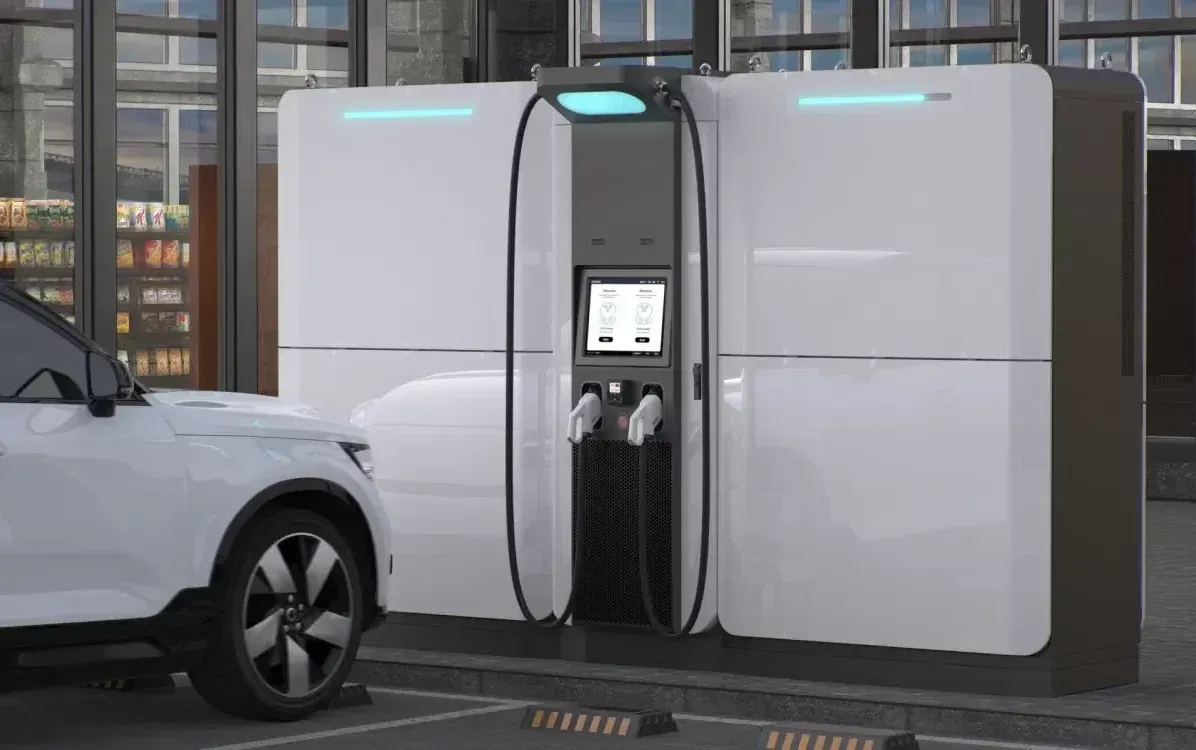Notifications

10 minutes, 49 seconds
-77 Views 0 Comments 0 Likes 0 Reviews

Introduction: Why EV Charging Matters Now More Than Ever
As a professional EV charger manufacturer in China, Topper Company provides dependable electric vehicle charging equipment and comprehensive charging solutions.
The real estate sector is on the cusp of a major transformation. According to a recent CBRE white paper, both commercial and residential real estate markets are poised for significant growth in 2025. For developers, investors, and property managers, this growth presents a unique opportunity but also a challenge: how can properties stand out in an increasingly competitive market?
One of the most powerful ways to gain an edge is by embracing electric vehicle (EV) charging infrastructure. As the world shifts toward sustainable transportation, EV charging is no longer a luxury—it’s quickly becoming a necessity. Forward-thinking real estate professionals are now incorporating EV chargers into their properties to attract tenants, future-proof their assets, and unlock new revenue streams.
The global push toward electrification is gaining momentum. With strong policy backing from the U.S. government and ambitious electrification targets set by major automakers, the transition to EVs is no longer a matter of "if," but "when." It is estimated that the U.S. will need to invest approximately $87 billion in EV charging infrastructure by 2035 to support a full transition to electric passenger vehicles.
While the Bipartisan Infrastructure Bill has allocated $5 billion for EV charging, this is just a small portion of the needed investment. The public sector cannot shoulder this responsibility alone. Much of the burden—and opportunity—will fall on private industries, particularly real estate.
From office complexes and retail centers to multifamily housing and logistics parks, integrating EV charging stations into properties can significantly enhance their appeal. These charging stations not only meet tenant expectations but also drive long-term value, creating opportunities for additional revenue through usage fees and partnerships with charging network providers.
Investing in EV infrastructure is not just about jumping on the latest trend—it’s about remaining relevant in a rapidly evolving market. Here are several key advantages for property owners and developers who integrate EV charging stations:
Increased Property Value
Properties with EV charging stations are viewed as modern, sustainable, and forward-thinking. Studies show that buildings with EV amenities can command higher rents and experience lower vacancy rates, particularly in urban and suburban areas where EV adoption is rising most quickly.
Attracting and Retaining Tenants
Eco-conscious renters and commercial tenants are increasingly seeking properties that align with sustainability goals. Offering EV charging positions your property as a green, future-oriented choice, appealing to a broad range of tenants—from environmentally-minded families to corporations with sustainability mandates.
Meeting Regulatory Requirements
Cities and states are increasingly mandating that new developments include EV charging stations. By proactively integrating EV infrastructure, property owners can avoid costly retrofits and potential penalties down the road.
Access to Incentives and Tax Credits
There are various federal, state, and local incentives available for installing EV chargers, which can help offset upfront costs and improve return on investment. These incentives range from tax deductions and rebates to utility programs that support infrastructure upgrades.
New Revenue Opportunities
Beyond attracting tenants, EV charging stations can generate additional income. Property owners can charge users a fee, collaborate with charging service providers for profit-sharing agreements, or offer subscription-based access for tenants.
The commercial real estate sector stands to benefit greatly from the EV revolution. Retail centers, business parks, and hospitality venues are prime locations for Level 2 and DC fast chargers, which attract both foot traffic and longer dwell times.
Retail: EV chargers in retail spaces can encourage customers to spend more time on-site, leading to higher spending as they wait for their vehicles to charge.
Office Buildings: Providing workplace charging helps employers meet their sustainability targets while attracting top talent.
Hotels and Resorts: On-site EV charging can make these properties more appealing to EV-driving travelers.
But perhaps the most transformative opportunity lies in fleet charging.
As e-commerce continues to boom and delivery fleets shift to electric vehicles, demand for charging hubs capable of serving medium- and heavy-duty EVs will skyrocket. However, properties with the physical, electrical, and logistical capacity to accommodate fleet charging are still in short supply.
Industrial property owners who act now have the chance to position themselves as leaders in this space. Facilities located near major highways, distribution corridors, or urban centers can be developed or retrofitted with EV infrastructure to cater to logistics companies transitioning their fleets to electric.
Fleet charging presents opportunities not just for large corporations but also for small to mid-sized fleet operators, including service vehicles, contractors, and local municipalities. This shift opens up high-demand, high-value opportunities in a traditionally low-margin sector.
Multifamily housing developers can no longer ignore the growing demand for EV charging. Today’s tenants expect more than just parking spaces—they expect reliable, convenient charging options at home.
Benefits of adding EV charging in residential properties include:
Competitive Differentiation: Properties with EV chargers stand out in online listings and appeal to younger, tech-savvy renters.
Tenant Retention and Satisfaction: Offering this amenity improves tenant satisfaction, potentially reducing turnover.
Flexible Billing: Property owners can implement metered usage, offering transparent billing based on actual usage or flat-rate plans for simplicity.
Retrofitting can be expensive, but incorporating EV charging in new builds or upcoming renovations offers a cost-effective, scalable solution. Modular and smart charging systems make it easier than ever to manage demand, track usage, and maintain infrastructure.
Before moving forward with EV charging, there are several key factors to address:
Electrical Capacity and Grid Access: Assess whether your property’s electrical system can support the added load, and coordinate with utility providers if needed.
Charger Type and Quantity: Choose the right chargers based on property type, user needs, and budget. Residential buildings may favor Level 2 chargers, while commercial fleets may require DC fast charging.
Smart Charging Capabilities: Consider chargers with smart features such as load balancing, remote management, and network connectivity to optimize usage and reduce energy costs.
Permits and Regulations: Stay informed about local building codes, zoning laws, and fire safety regulations to ensure compliance during installation.
User Access and Payment Options: Decide whether chargers will be exclusive to tenants or available to the public. Offer flexible payment options such as pay-as-you-go or membership models.
The shift toward electric vehicles is reshaping industries—and real estate is no exception. As EV adoption grows, so will the demand for accessible and convenient charging infrastructure. By investing in EV charging today, property owners and developers can capitalize on this expanding market, increase property value, and establish themselves as leaders in sustainability.
Though the initial investment may seem significant, the long-term benefits—from tenant attraction and retention to new revenue streams and regulatory advantages—make it a smart move. Real estate professionals who embrace EV infrastructure now will be best positioned to thrive in the future.
The real estate industry has a unique opportunity to lead the charge in America’s transition to electric mobility. Whether you manage commercial retail spaces, develop multifamily housing, or invest in industrial logistics hubs, EV charging is an invaluable tool for growth, innovation, and long-term success.
As the infrastructure gap continues to grow, the market will reward those who act early. EV charging stations are more than just a passing trend—they are a key component of the sustainable, tech-driven communities of tomorrow.Know more about Google SEO Directory
China EV Chargers EV Charger Manufacturer EV Charging Solutions

